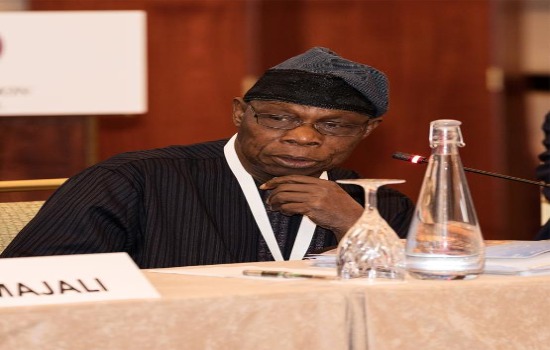IMF says Nigeria must sustain the bold economic reforms to boost economic output
The International Monetary Fund (IMF) has advised the Nigerian government to sustain ongoing economic reforms for the country to get better and achieve the desired economic growth that will lift the majority of citizens out of poverty.
The multilateral institution also urged the federal government to address governance and business regulation bottlenecks to grow the economy at five to eight percentage points annually.
Dr. Christian Ebeke, IMF Resident Representative in Nigeria, gave the advice on Tuesday in Lagos at the Lagos Chamber of Commerce and Industry (LCCI) International Business Conference and Expo 2024, Invest Nigeria.
In his presentation, “Nigeria Must Stay the Course on Reform Agenda,” Ebeke stated that the country was faced with acute policy trade-offs that stemmed from inherited imbalances. He added that Nigeria’s outlook was predicated on strong policies since “higher and durable growth required macro stability and further reforms”.
He said the IMF believed that Nigeria’s economy was currently turning the corner, but warned that the country must sustain the bold reforms.
According to him, reforms in governance and business regulations can lift Nigeria’s output by 6.4 per cent in the next three years.
Ebeke said, “When we look at Nigeria, it is always better to compare it with what it aspires to be, which is to be a large emerging market nation.
“So, we want to compare Nigeria with India, China and Indonesia. We strongly believe that this is where Nigeria should be.
“But you can see that governance and business regulation remain something that needs to address. Compared to other emerging markets, governance remained a challenge in Nigeria. At different levels, it could be corruption, rule of law or other governance indicators. The same thing can be said for business regulation.
“Over the last decade, there has not been enough progress in reducing the gap between Nigeria and other emerging markets in terms of governance and business regulation.
“Governance and business regulation are where more actions are still needed.”
Ebeke asserted that Nigeria could lift its economic output by 6.4 percent if it could do the type of reforms India and other emerging market countries did, simply by reducing the gaps in governance and business regulation by 25 per cent.
He stated, “If you divide this six by three, you will have an additional two percentage points of growth. Right now, Nigeria is growing at three per cent. It means that this country can grow at five per cent by simply reducing the governance bottlenecks and the business regulation bottleneck by just 25 percent only.”
He added that if Nigeria could deepen the reform further to 50 per cent, the country would enjoy much more growth dividend that would be 12 percentage points higher.
The IMF country representative said, “Nigeria needs to grow at least by five or eight per cent every year, above the population growth. This is good for businesses and this is a particular growth in a period when interest and inflation rates are high.
“In our (IMF) recent research that we have done, we see a case for structural reforms. What it has shown is that when you start looking closely at where Nigeria lacks behind vis-a-vis other emerging markets, there are issues, such as governance and business regulation that need to take precedence.
“Closing these gaps will trigger much durable growth acceleration and more inclusive growth also in Nigeria”
According to him, Nigeria faces acute policy trade-offs resulting from inherited imbalances, which informed President Bola Tinubu’s seriousness in reforming the economy.
Ebeke said, “When we look at Nigeria, we have to look at the history at least over the past 10 years. Most of the red indicators are the result of inherited policies that exasperated the balances.
“So, last year was a moment of clarity for policymakers and they rightly took significant reforms to change the path for the economy.”




